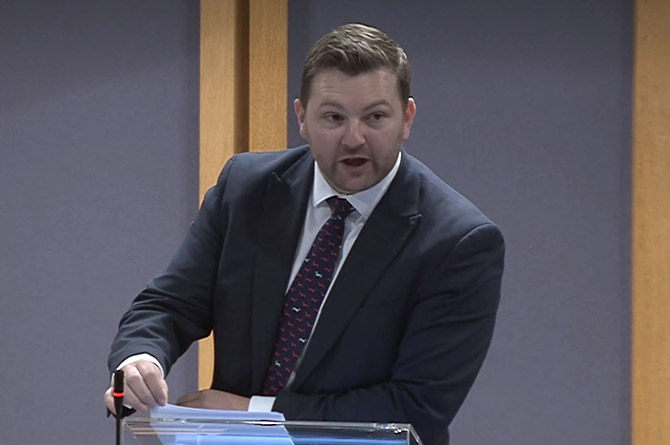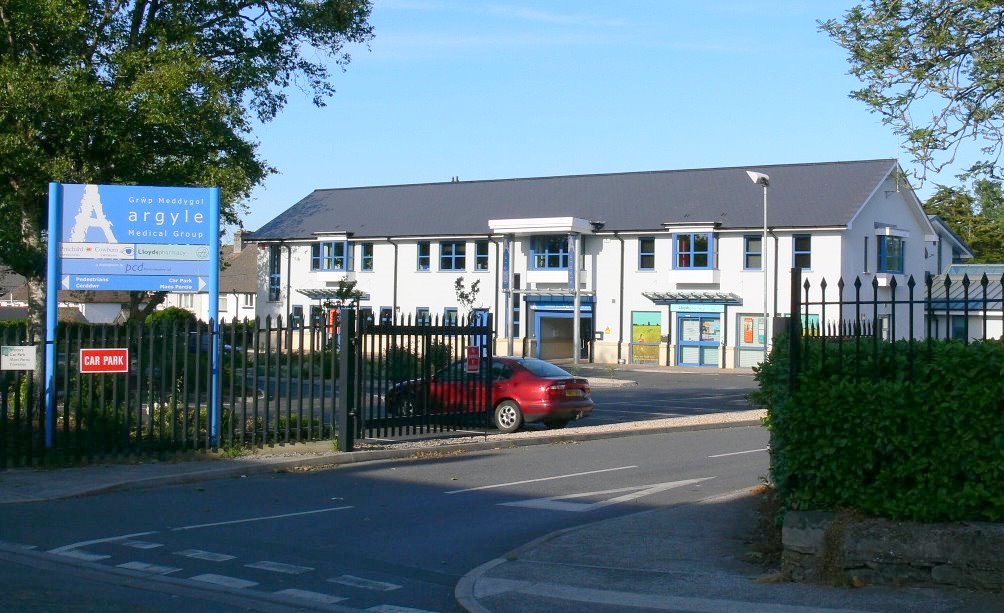Politics
Right to Buy discount halved

IT WAS ANNOUNCED last week that the Welsh Government had halved the maximum discount available under the Right to Buy scheme in an attempt to ‘protect the social housing stock’.
Earlier this year Communities Minister Lesley Griffiths announced her intention to end the scheme, which has been in existence since the early eighties when it was introduced by Michael Heseltine, Margaret Thatcher’s Environment Minister as part of the Housing Act (1980).
It is hard to think of a single policy which has been so divisive over the last three decades. It is, in effect, an ideological issue; with Free Market proponents on the one side advocating the power and responsibility taken from the state and given to the individual. Opposing this are critics who point to the drastic reduction in social housing over the time period, and the corresponding increases in homelessness and the use of public money to pay private landlords.
In Wales, 138,709 council-owned homes were sold under Right to Buy between 1981 and 2014 – leading to a reduction in the social housing available of 45 percent. Nationally 42% of the population lived in council housing in 1979 – by 2008 this had dropped to 12%.
The sale of council housing was originally meant to provide funds which would enable local authorities to pay back loans and build new properties. However, restrictions were placed on the proceeds of the sales, and councils found that they could not build any new social housing until these loans had been paid off. House building by local authorities in England and Wales dropped dramatically during the eighties, and has never recovered.
The Labour Government initially opposed the policy, but changed their position in 1985. Tony Blair’s government introduced caps on the discount available in areas short of social housing, and in 2005, the rules were changed to stop former tenants selling on the open market immediately after purchase. A five-year minimum residency before becoming eligible for the scheme was also introduced.
The policy was initially very popular among council tenants, and it was considered to have played a major role in Margaret Thatcher’s landslide victory of 1983, when in 1980 she had the lowest approval rating of any prime minister since records began.
However, repossession rates were notably higher than those for people taking out private mortgages, and homelessness across Great Britain trebled over the eighties. Another bone of contention for those opposed to Right to Buy concerned the burgeoning buy to let market, which in many cases saw ex-council housing stock rented out at considerably more than the local authority charged.
Because most of the council housing purchased was of good quality, and as a result of housing shortages leading to applicants being prioritized on the basis of need, many tenants found themselves living in areas of increasing social deprivation. Cuts to council maintenance budgets, and a dramatic increase in council rents contributed to this on a national level, and to some extent made Right to Buy a self-fulfilling prophecy for those who could afford it. By the mid-nineties, 95% of council tenants qualified for means-tested benefits.
There has been a rise in the number of social housing sales in Wales over the last five years, with 544 properties sold last year. In response to this, the maximum discount has been reduced to £8,000 from £16,000. Commenting on this, Lesley Griffiths AM said that “Right to Buy is depleting our social housing stock.
“This damaging policy is further increasing the pressure on our social housing supply and is forcing many vulnerable people to wait longer for a home,” she added.
“This is why the Welsh Government has taken decisive action to protect our social housing and make sure it is available for those who need it most. Today is a significant step towards our eventual goal of abolishing the Right to Buy and Right to Acquire in Wales.”
The Conservatives, unsurprisingly, disagree with this. Speaking earlier this year, Shadow Assembly Housing Minister Mark Isherwood said that the move ‘flies in the face of aspiration and ambition. It will limit supply and deny people in council properties the choice and power to buy their own home’.
Mr Isherwood announced the intention of the Welsh Conservatives to extend Right to Buy: “We would invest all the sales proceeds in new social and affordable housing to help tackle Labour’s housing supply crisis and take households off their record-breaking waiting lists,” he added.
“Scrapping the right to buy is further proof that it’s anti-aspiration; stuck in an ’80s socialist dogma where it believes the government knows best – not the individual. We must use every tool in the armoury to increase housing supply in order to make housing more affordable.”
Whether selling off social housing in order to make money which could potentially be used to build more is a viable solution to these ‘record-breaking waiting lists,’ or indeed whether the aforementioned 45 percent reduction in available social housing could have had anything to do with the current housing shortage remains unclear.
This also fails to take into consideration people living in social housing that is not covered by Right to Buy, and indeed the large number of people renting from private landlords, often because of a shortage of council housing.
In England, the Conservatives have announced proposals which would extend Right to Buy across all areas of social housing. However, the social housing provider would have to be compensated, thus meaning that the discounted price would have to cover the cost of a new equivalent house. This is meant to be funded through local authorities selling off their more expensive council houses when they become vacant, but research has shown that outside of London the figures often fail to add up.
Local Government
£4m Plaid Cymru deal boost to Pembrokeshire council coffers

PEMBROKESHIRE’S financial situation for next year is some £4m better off after a higher settlement from the Welsh Government, but the council still faces difficult decisions, councillors heard.
While council tax makes up a proportion of the council’s annual revenue, a crucial area of funding is the Aggregate External Finance (AEF) rate from Welsh Government.
Pembrokeshire was to receive a 2.3 per cent increase on its settlement, a total of £244,318,000, amounting to an extra £5,493,000, placing it at joint 13th of the 22 local authorities in Wales.
Now, following a Welsh Government and Plaid Cymru agreement, local authorities including Pembrokeshire have received a better financial settlement.
Speaking at the December meeting of Pembrokeshire County Council, while presenting a report on the outline draft medium term financial plan (MTFP) 2026-27 to 2028-29, Cabinet member for finance Cllr Alistair Cameron said the recent rise in the financial settlement from the Welsh Government had decreased the expected funding gap for the next financial year for the county from £17.7m to £13.6m, but stressed: “There are still increased pressures we are going to have to face.”
His report for members outlined some of the pressures faced by the council in setting its budget for the next financial year.
“Based on the revised projected funding gap of £13.6m, it is evident that major budget savings as well as a significant Council Tax increase will be required in order to deliver a balanced budget for 2026-27. The lower the Band D Council Tax increase, the higher the budget savings requirement will be, with the consequential adverse impact on the provision of Council services and on the medium-term financial sustainability of the council.”
His report also noted the decision in October by members to cut the council tax premium on second homes from 150 to 125 per cent, which on its own has increased the funding gap for 2026-27 by £1.3m.
The report, listing the many pressures and potential savings, said that where possible, discretionary fees and charges income has been budgeted to increase by 3.8 per cent, with any increases above this level included as part of the budget savings options presented.
The report for members, prior to the revised settlement from Welsh Government, gave council tax increase options ranging from five to 10 per cent with 7.5 per cent highlighted as the most favoured option, the 7.5 rate equating to a £2.38 a week increase for the average Band D property; each one per cent increase or decrease in council tax being worth £0.908m for council coffers.
Leader of the Conservative group on the council Cllr Di Clements made a plea to the leader, calling on the council to use the extra money from Welsh Government to “contribute to making this authority financially sustainable in the long term,” adding: “We know it’s tough out there for our council tax-payers, let’s hopefully give them a break this year.”
Independent Group leader Cllr Huw Murphy said the better settlement was “a huge sigh of relief” for the council, adding: “The budget negotiations still won’t be any easier because we’ve had this pot of money; [but] we have to applaud Plaid Cymru on this.”
A long string of recommendations essentially noting the report, but including the fees and charges increase, was moved by Cllr Cameron, seconded by Leader Cllr Jon Harvey, backed by members by 46 votes to one, with three abstentions.
The actual setting of the budget and related council tax level along with any potential savings and cuts, will be decided at a later date, with a public consultation running to January 4, followed by committee scrutiny ahead of Cabinet considering a revised draft budget on February 9, before it is recommended to full council on February 20.
News
Kurtz criticises Tufnell over GP pressures at Argyle Medical Centre

Local MS says Welsh Government decisions are root cause of crisis
CONSERVATIVE Senedd Member Sam Kurtz has criticised Labour MP Henry Tufnell after the MP suggested GP practice management should be held accountable for patient dissatisfaction at Pembroke Dock’s Argyle Medical Centre.
Patients registered at the surgery have for years raised concerns about access to appointments, particularly difficulties securing same-day consultations and long waits to get through on the phone.

Speaking to BBC Wales, Mr Tufnell said he had discussed the situation with the Health Board’s Chief Executive and claimed the senior official “feels powerless” to intervene.
He said: “I’ve spoken to the Chief Executive of the Health Board, and he feels powerless to do anything about it. We need to come together and hold the management of these surgeries to account; there must be transparency about what they’re doing, and, fundamentally, we need reform in the system.”

Mr Kurtz responded angrily, arguing that responsibility for reforming NHS Wales rests with the Welsh Government, not GP surgeries or frontline staff.
He said: “I don’t think it’s very helpful to point the finger at the surgery and suggest the fault lies with them when staff are working incredibly hard.
“If he wants to point the finger, it should be at his Labour colleagues in Cardiff Bay, who have continuously piled pressure onto GP practices by imposing contracts that are extremely difficult to deliver. That is why surgeries like Argyle are under such strain.”
Mr Kurtz later told The Pembrokeshire Herald that the problems faced by GP practices across Pembrokeshire were the result of long-term policy failures rather than poor local management.
“As someone born and raised in Pembrokeshire, I have seen first-hand the damage caused by the Welsh Labour Government’s mismanagement of our local NHS, despite the dedication and professionalism of frontline staff who continue to do their very best in increasingly challenging conditions,” he said.
“Anyone seeking to place the blame on NHS staff should back off. The fault does not lie with them. Real improvement will only come through properly supporting GP practices, listening to their concerns and working with them rather than against them.”
Argyle Medical Group is the second-largest GP practice in Wales, serving around 25,000 registered patients with nine GPs — an average of approximately 2,800 patients per doctor. In 2021, the practice had the equivalent of 10.75 full-time GPs and was actively seeking to recruit more.
However, ongoing recruitment difficulties forced Argyle to withdraw from its contract at St Clement’s Surgery in Neyland and reduce hours at St Oswald’s Surgery in Pembroke. Following the Neyland closure, patients were transferred to the Neyland and Johnston Medical Practice, which later handed back its GP contract after retirements and further recruitment problems. Those patients are now treated by salaried and locum GPs employed by the Health Board.
Similar pressures are being felt across Pembrokeshire, from Tenby in the south-east to St Davids in the north-west. While Wales does not face “GP deserts” on the same scale as the well-documented shortage of NHS dentists, reduced access to general practice has contributed to more patients attending hospital for conditions once routinely dealt with by GPs. This has placed additional strain on hospital services and staff.
In 2018, the Welsh Government pledged to recruit 1,000 additional GPs into NHS Wales. While overall GP headcount has risen, the number of full-time GPs has continued to fall. Many newer recruits work part-time, as locums, or on limited contracts, meaning fewer doctors are available in practice on a day-to-day basis.
Newly qualified GPs have also tended to favour larger urban centres, particularly along the M4 corridor and in north-east Wales, where professional support and career opportunities are greater. Critics argue that Welsh Government recruitment and retention strategies have failed to address persistent shortages in rural and coastal communities.
There are also ongoing shortfalls in independent prescribing pharmacists and community nursing staff, limiting efforts to relieve pressure on GP surgeries.
Mr Kurtz said: “The foundation of NHS care — with GPs as the first point of contact — has buckled. Blaming GP staff is a distraction. The issues are structural, long-term and political, and ultimately the buck stops in Cardiff Bay.”
Health
NHS Wales spends more than £15.5m on agency radiographers as pressures grow

NHS WALES has spent more than £15.5 million on agency radiography staff over the past five years, as mounting pressure on diagnostic imaging services raises concerns about long-term workforce sustainability.
Figures obtained by the Welsh Liberal Democrats through Freedom of Information requests show that spending on temporary radiographers almost doubled between 2020/21 and 2023/24, despite relatively low headline vacancy rates across Welsh health boards.
Radiographers carry out X-rays, CT, MRI and ultrasound scans, which are essential to emergency care, cancer diagnosis, trauma treatment and elective surgery. Delays or shortages in imaging services can have a knock-on effect across patient pathways, slowing diagnosis and treatment.
The data also highlights an ageing workforce. More than a quarter of radiographers in Wales are aged over 50, with more than one in ten aged 55 or above. In some health boards, a significantly higher proportion of staff are approaching retirement age, raising concerns that experienced radiographers could leave faster than they can be replaced.
Betsi Cadwaladr University Health Board recorded the highest agency spend, at more than £8.1m over the period covered by the FOI requests. Other health boards also reported growing reliance on temporary staff to maintain services, particularly where specialist skills are required.
While official vacancy figures remain comparatively low, professional bodies have previously warned that vacancy data does not always reflect pressure on services, as posts can be held open or covered through overtime and agency staff rather than filled permanently.
Diagnostic imaging demand has increased steadily in recent years, driven by an ageing population, advances in medical imaging technology, and rising referrals linked to cancer and long-term conditions.
Commenting on the findings, Welsh Liberal Democrat Leader Jane Dodds MS said:
“Radiographers are absolutely vital to the NHS. From diagnosing cancer to treating people in A&E, the vast majority of patient journeys depend on timely access to scans.
“These figures show a system increasingly relying on expensive agency staff while failing to plan properly for the future workforce. That is not fair on patients, and it is not fair on staff who are already under huge pressure.
“The Welsh Labour Government must take urgent action to improve recruitment and retention, support experienced staff to stay in the workforce for longer, and ensure NHS Wales has a sustainable radiography workforce fit for the future.”
The Welsh Government has previously said it is working with health boards to improve recruitment and retention across NHS Wales, including expanding training places and supporting flexible working arrangements to help retain experienced staff. Ministers have also pointed to record numbers of staff working in the NHS overall, while acknowledging ongoing challenges in hard-to-recruit specialties.
However, opposition parties and professional bodies continue to warn that without long-term workforce planning, reliance on agency staff could increase further, adding to costs and pressure on already stretched diagnostic services.
-

 Crime2 days ago
Crime2 days agoMilford Haven man jailed after drunken attack on partner and police officers
-

 News5 days ago
News5 days agoDyfed-Powys Police launch major investigation after triple fatal crash
-

 Crime2 days ago
Crime2 days agoTeenager charged following rape allegation at Saundersfoot nightclub
-

 Crime2 days ago
Crime2 days agoMan charged with months of coercive control and assaults
-

 Crime3 days ago
Crime3 days agoMan sent to Crown Court over historic indecent assault allegations
-

 Crime5 days ago
Crime5 days agoMan spared jail after baseball bat incident in Milford Haven
-

 Crime3 days ago
Crime3 days agoMilford Haven man admits multiple offences after A477 incident
-

 Crime3 days ago
Crime3 days agoWoman ‘terrified in own home’ after ex breaches court order






















